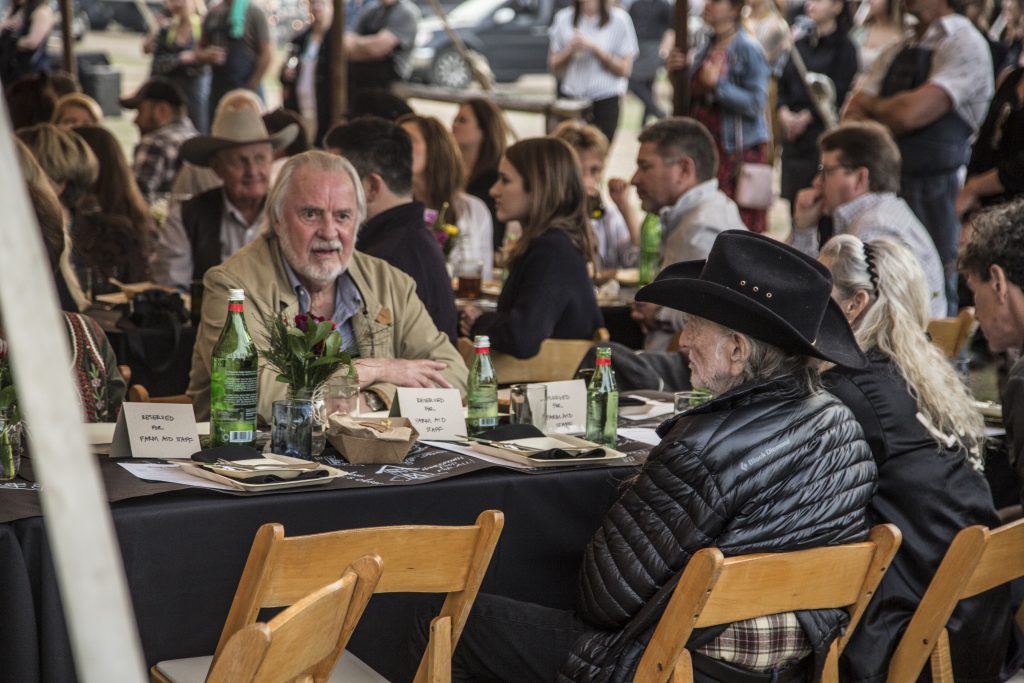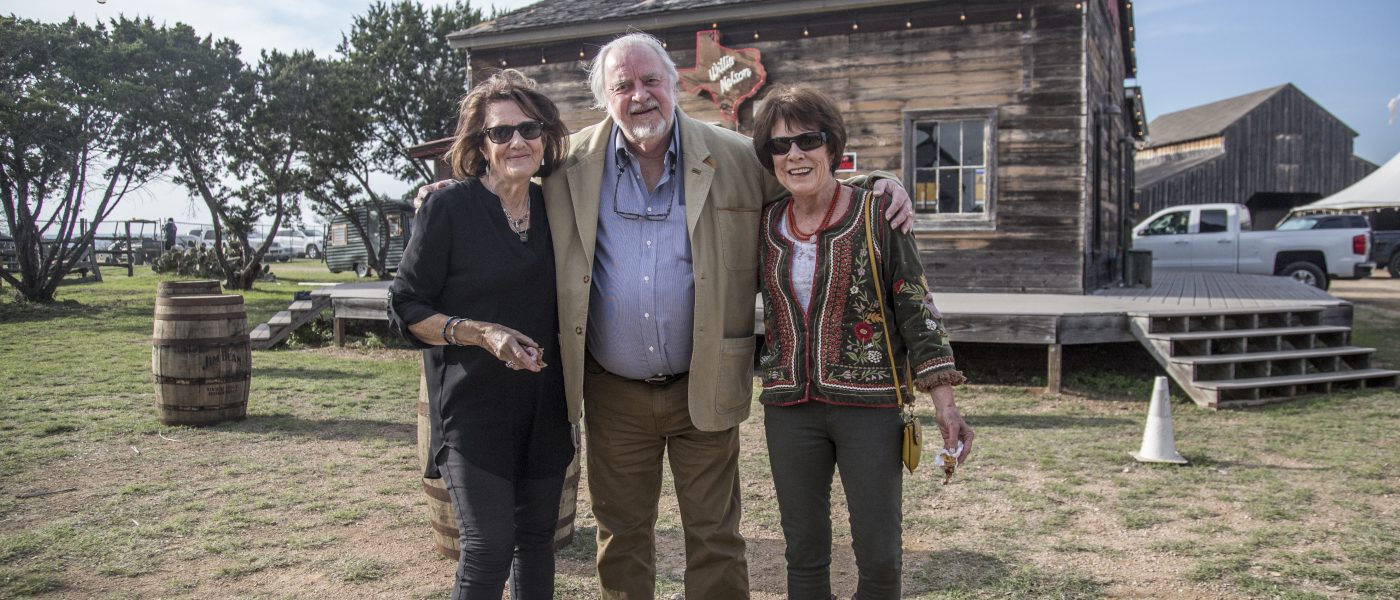Farm Aid honors the memory of William (Bill) Witliff, who passed away on June 12 at the age of 79. A lifelong friend and supporter of Farm Aid who was involved in its early days as an advisor to Willie Nelson, Bill is best known as the legendary screenwriter of the TV series “Lonesome Dove” and the films The Perfect Storm and Legends of the Fall, The Red-Headed Stranger and Honeysuckle Rose (the last two listed starring Willie). Bill wrote Country, a film about the Farm Crisis starring Jessica Lange and Sam Shepard. Bill was also an incredible photographer, a novelist and an archivist of important works by writers of the Southwest and of photographers of the Southwest and Mexico.
We will miss Bill; he was incredibly important to all of us at Farm Aid and to family farmers everywhere. We asked Bill about Farm Aid’s early days in 2005, when we wrote Farm Aid: A Song for America. Below is what he had to say, sentiments that resonate to this day, especially as farmers face a new crisis.

Bill Witliff shares dinner and conversation with his longtime friends Willie and Annie Nelson. Photo: Rhett Rogers
As part of the series of interviews about Farm Aid’s creation, Bill Witliffe shared:
Jessica Lange had read an article in a newspaper about a family farm that had gone belly up. Sam Shepard told her about me because Sam and I did Raggedy Man. This was before there was any national attention to the plight of the family farmers. We went to Iowa, drove around the back roads, and pulled in on farmers. These farmers were really reluctant to talk. It was hell to get them to open up. They hadn’t talked to their neighbors. There could be two guys sharing the same fence line and both be in trouble and they wouldn’t know it. At that time, the government had made them feel like they had violated the land and that’s why they were in trouble. It gutted them. They lost their pride.
There was one guy we were talking to and the whole time he kept his hand on the telephone, like if it got too uncomfortable, the telephone was a way out. Jessica being there was really something to them, that a ‘celebrity’ was interested in their horrors–the fact that a celebrity of Jessica’s stature was sitting at their kitchen table. We were talking to one farmer and he could barely speak. The farmer stirred and shuffled. He looked me in the eye–like family farmers do–and spoke of a recent dark morning on the prairie. He said, ‘I got up, walked down to the barn, and made a noose out of bailing wire’ He said he was going to hang himself. ‘I said, “Why didn’t you?” He said, ‘Because of my kids.’
Family farmers have an allegiance to the soil and to the United States. They are the guys who wiggle their toes in the dirt all their lives. That’s where they came from and who they were always going to be. In their own minds, it is where God put them. Then, all of a sudden, the government says, ‘You weren’t a good steward of the land.’ That was a terrible thing the government did and still does to the family farmer. During the Nixon administration, farmers were told, ‘Plant fence post to fence post. We’re going to feed the world.’ And then because of politics, there was no market. So they told the farmer, ‘You weren’t a good manager, now pay up.’
Traditionally the Farmers Home Administration (FmHA) were local guys, so they knew all the local farmers. If somebody came in and had a bad year they knew they were a good farmer and they knew when they weren’t. All of a sudden, here come new guys, trained in agricultural schools, who were accountants, they’re not local, they didn’t know anybody, it’s all numbers. The farmer would come in to talk about a small loan to make a furrowing shed and then they’d say, ‘Don’t you need a barn?’ Basically, selling them money. I wrote a scene right out of the farmer’s mouth–that’s in the movie.
Farm Aid was never a ‘thought’ thing. It was always a ‘felt’ thing. That’s what made it work. There’s a line, ‘Whatever you’re looking for is looking for you, too.’ At that time, when these farmers were looking for help, there was someone looking to help them.
Every once in a while these things get in the air and sympathetic souls congregate. One of the most astonishing things is that Hollywood actually made a movie about it. Can you imagine talking to a studio about making a movie about farmers? Outrageous! Even for some of those Hollywood guys, it was in the air.
In addition to Farm Aid, one place in which Country helped was letting farmers know they weren’t alone. They started talking to each other, and God knows how many lives that saved once they realized, ‘Jesus, I’m not the only one in trouble.’
There’s a reason they call it the ‘heartland’ and it’s not because it’s in the center of the country. It’s the connotations of the word ‘heart.’ That’s why Farm Aid worked and why it attracted people like Carolyn, Willie, John Mellencamp, Neil Young. You just name all of them, any of them. The heartland is an inner place.”



